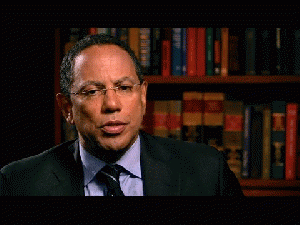NPR's David Folkenflik has a revealing new look at what I have long believed is one of the most important journalistic stories of the last decade: The New York Times' 2004 decision, at the behest of George W. Bush himself, to suppress for 15 months (through Bush's re-election) its reporters' discovery that the NSA was illegally eavesdropping on Americans without warrants.
Folkenflik's NPR story confirms what has long been clear: The only reason the Times eventually published that article was because one of its reporters, James Risen, had become so frustrated that he wrote a book that was about to break the story, leaving the paper with no choice (Risen's co-reporter, Eric Lichtblau, is quoted this way: "'He had a gun to their head,' Lichtblau told Frontline. 'They are really being forced to reconsider: The paper is going to look pretty bad' if Risen's book disclosed the wiretapping program before the Times'").
As Folkenflik notes, this episode was one significant reason Edward Snowden purposely excluded the Times from his massive trove of documents. In an interview with Folkenflik, the paper's new executive editor, Dean Baquet, describes the paper's exclusion from the Snowden story as "really painful." But, as I documented in my book and in recent interviews, Baquet has his own checkered history in suppressing plainly newsworthy stories at the government's request, including a particularly inexcusable 2007 decision, when he was the managing editor of The Los Angeles Times, to kill a story based on AT&T whistleblower Mark Klein's revelations that the NSA had built secret rooms at AT&T to siphon massive amounts of domestic telephone traffic.
In his NPR interview, Baquet insists that he has had a serious change of heart on such questions as a result of the last year of NSA revelations:
"[Baquet] says the experience has proved that news executives are often unduly deferential to seemingly authoritative warnings unaccompanied by hard evidence.
"'I am much, much, much more skeptical of the government's entreaties not to publish today than I was ever before,' Baquet said in a wide-ranging interview. ...



